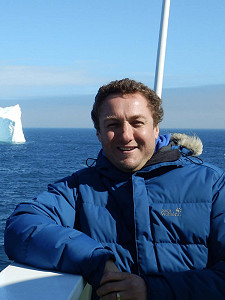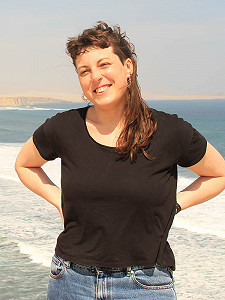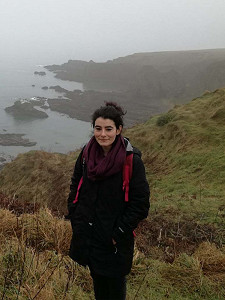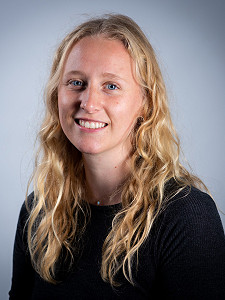Humboldt Tipping at the GlobalTip Final Conference

In early July, German and Peruvian scientists of the Humboldt Tipping project gathered in Frankfurt, Germany, to take part in the final conference of the GlobalTip program (Tipping Points, Dynamics and Interactions of Social and Ecological Systems), funded by the German Federal Ministry of Research, Technology and Space (BMFTR). Over two days, representatives from all six GlobalTip projects, spanning regions across the globe, came together to share research results and discuss global tipping points in social-ecological systems.
Tipping points can have both regional and global consequences. Humboldt Tipping, for example, focuses on the Humboldt Current upwelling system off the coast of Peru, one of the most productive marine areas in the world thanks to the natural rise of cold, nutrient-rich water from the deep sea. However, recent findings from the project show that by 2050, Peru’s coastal waters may face profound and possibly sudden climatic and ecological changes, even if global emissions are reduced. These changes are likely to impact marine ecosystems and the fishing sector, especially small-scale fishers, who are more vulnerable under high-emission scenarios. While anchovy catches may decline, improving how fisheries are managed could still provide up to half of Peru’s futurenutritional needs. Our findings highlight the need to prepare early, improve the ability to adapt, and strengthen governance to face upcoming social and environmental challenges.
These insights formed the basis for the Humboldt Tipping team’s contributions at the conference, where they presented a range of research findings and perspectives on the social-ecological transformations in Peru’s coastal waters and communities.
Dr. Renato Salvatteci (Kiel University), project lead, introduced the project in a dynamic Pecha Kucha-style presentation. Further talks, delivered throughout the conference, showed key aspects of the project’s interdisciplinary research: from navigating social-ecological dynamics (Dr. Alonso Del Solar & Michael Kriegl, ZMT Bremen), to identifying climate-related drivers in the marine ecosystem (Dr. Mathias Zeller, GEOMAR Kiel & Dr. Alonso Del Solar), and understanding regime shifts in the Humboldt System (Dr. Giannina Passuni, University of Hamburg). Furthermore, Sara Doolittle Llanos and María Garteizgogeascoa (University of Bremen) presented the politics of resilience, and Dr. Renato Salvatteci introduced the development of future scenarios for fisheries and coastal communities.
The presentations were complemented by dynamic discussions with local and international project partners, including Humboldt Tipping’s Dr. Gerardo Damonte (PUCP), Dr. Dimitri Gutiérrez (IMARPE), Dr. Jorge Tam (IMARPE), Prof Dr. Michael Flitner (University of Bremen), Giannina Passuni and Dr. Renato Salvatteci. Watch the discussions here (EN).
At the conference, Dr. Renato Salvatteci emphasized the importance of collaborative approaches:
"GlobalTip has played a key role in bringing together researchers and fisheries stakeholders to jointly develop future scenarios and adaptation strategies for the vulnerable Humboldt upwelling system in response to socioeconomic and climatic changes.”
Contacts
Dr. Alonso del Solar
Postdoctoral Researcher
alonso.delsolar@leibniz-zmt.de
Tel. +49 (0)421 23800 - 0
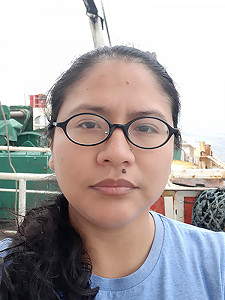
Dr. Giannina Passuni
Postdoctoral Researcher
giannina.passuni.saldana@uni-hamburg.de
Tel. +49 40 42838 6670



